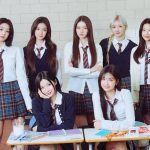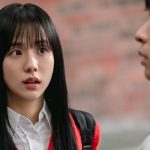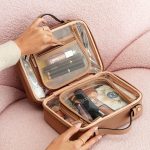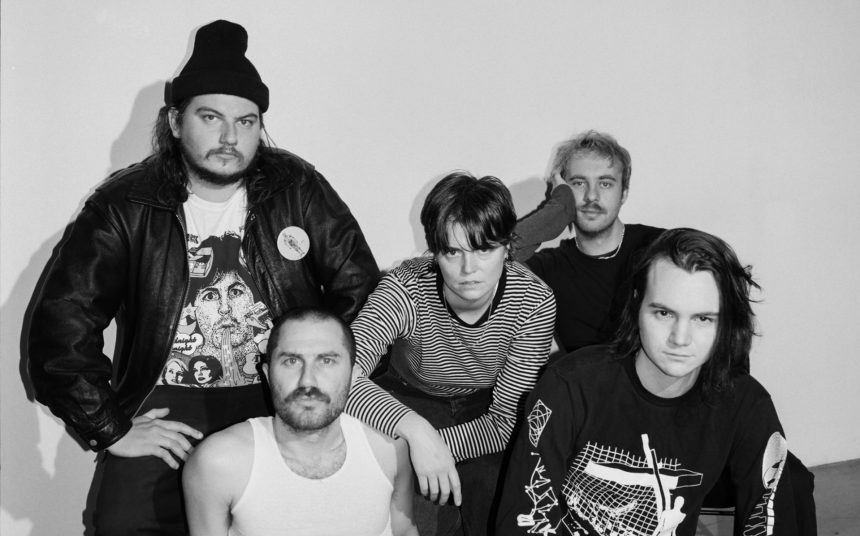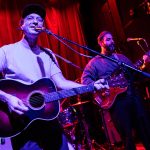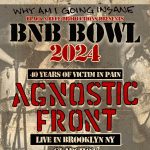Psymon Spine’s newest album, Head Body Connector, wouldn’t exist without their live show in mind. Written mostly throughout 2020, when venues were still shuttered and hope was fraying, the band channeled the intense moments of passion, sweat, and revelation that only happen when you’re packed in a room together, sharing a communal experience with strangers. The music is deeply groovy and disorienting, packed with a staggering attention to detail from a band who say they’re “obsessed with production.”
Read more: 24 of the most exciting rising artists to watch in 2024
They lunge into absurdities freely (there’s a track called “Ketamine Hot Tub” that could soundtrack those moments when TV characters take drugs and suddenly turn into cartoons) and aren’t afraid to get unorthodox, like when singer Noah Prebish originally added rodeo-sounding drums to “Antimatter Kid,” which they’ve been ending shows with lately. At one point, Prebish adopts his best impression of Sal Principato, the distinctive vocalist of NYC experimentalists Liquid Liquid, on “Bored of Guitar,” whose percussionist, Dennis Young, features on “Wizard Acid” — a nod to a creatively vast time and place that’s bubbling up again within the city. It is, ultimately, a joyful record punctuated by bursts of chaos and curiosity.
Here, Prebish delves into the Brooklyn dance scene, working with no-wave greats Liquid Liquid, and making their hugely fun “dream record.”
What kind of music did you listen to when you were a teenager?
I had many chapters, none all that surprising. My peak teenage years were mostly devoted to MGMT, Daft Punk, Justice, etc. Not much has changed there. Before that, it was Green Day and My Chemical Romance. I also had a friend/bully in high school who showed me Cibo Matto, Sonic Youth, and Dead Kennedys, and that was all highly impactful. I also read a lot of music mags. I had a subscription to AltPress and would pick up copies of SPIN and Under the Radar in the airport.
The new album is informed by your live show. What are some of the most unhinged or exaggerated moments that you’re looking forward to playing onstage?
We’ve actually gotten to play a lot of this record already on tour, and one of our favorite ways to end a show is with “Antimatter Kid,” the fourth track on the record. Like most songs on the record, this one was written in lockdown while I was going completely stir-crazy. My roommates and I would watch a lot of Thrasher videos, which made me want to skate, but unfortunately, I suck at skating, so one night I channeled my pent-up energy into a very over-the-top, unhinged pop jam with a lot of changes. As weird as the song is now, it was even weirder in the demo phase, and I really thought that song was going to be a tough sell with the rest of the band, but luckily they were down, and it grew a lot from there. They just made me take out the weird rodeo-sounding drums I started with in the intro. It’s a tricky song to play live but super fun.
How would you describe your live shows, and the wider Brooklyn dance scene, to someone out of state?
Our shows are cathartic and not self-serious. Lots of dancing and even some light crowdsurfing from time to time. Not from us — most of us have bad backs. As far as Brooklyn’s dance scene, it’s rich and diverse with endless amazing micro-communities. When I worked with The Lot Radio in Brooklyn, I got to spend a lot of time around many of them, which inspired our art/dance series Secret Friend with our friends at POND Creative.
When we were teenagers, electro-clash was the big thing in New York, and there was more overlap between DJ and band world. These days the two feel a lot more separate to me, in some cases for good reason, but it does make me happy seeing the two converge again lately. Some of my favorite New York bands that cross over into the dance/electronic/DJ zone right now are Operator Music Band, GIFT, Shallowhalo, 79.5, Mr Twin Sister, May Rio, Midnight Magic, Supertaste… There are too many to name.
You worked with Dennis Young of Liquid Liquid on “Wizard Acid,” who’ve made their own mark upon the New York scene and are, in my opinion, such an important band to come out of the city, right up there with the Velvet Underground and Blondie. How did you get connected?
I couldn’t agree more. They’re one of my favorite bands and wildly underrated. Not to say they don’t get any recognition, because obviously they do, just not as much as they deserve. Like many other people my age, I first came across them when I was in high school, and they opened for LCD Soundsystem. I was smitten. They had taken all of my favorite things — vocal hooks, hand percussion, and basslines — and distilled them into this delicious, potent serum of no wave and punk.
Dennis heard us on WFMU — big love to the wonderful Clay Pigeon — and messaged us via Bandcamp. He said something along the lines of, “I like your grooves. Let me know if you ever want any percussion.” We were backstage at a gig in Austin when we got the email, and I freaked out. Working with Dennis has been a pleasure, and we still email back and forth often. He’s a really sweet and supportive guy with a lot of cool music projects under his belt, past and current. I’m still so incredibly touched that he reached out the way he did. Sometimes being in a band is really cool.
Your song “Boys” is indebted to friendship. How has your relationship with each other evolved since the start of the band?
Michael and I met in high school, and Peter and I met in college. I met Sabine playing in another band after I moved to Brooklyn, and got to know Zeb and Sarah from the New York scene. Having known Michael for something like 15 years and Peter close to 12, we’ve watched each other grow and change and blossom, supporting and lovingly roasting each other along the way. We’ve done a lot of work to communicate and support one another better. Even Zeb, Sarah, and Sabine, who we’ve known for a comparatively shorter time, feel like family members. We are genuinely all really close friends and hang out when we aren’t doing band stuff. When tour ends, we all get separation anxiety.
I read that production means a lot to you, especially on this LP. What kind of details were you fixating on while finishing the record? What did you get stuck on?
I really appreciate this question/chance to ramble. The production moments I remember pulling my hair out over were all tiny, stupid things nobody else would ever care about. One specific snare hit here, an organ arpeggio there.
We’re all producers in and outside of Psymon Spine, so we all have really strong opinions about how things should sound. On previous records, we’ve always produced and composed simultaneously, letting the sounds guide the music, and vice versa. This works a lot of the time, but it creates two major problems. First, it makes it hard to play stuff live without having lots of technology onstage that can and will break constantly. And second, for me, I’ll almost invariably hit a wall at some point compositionally when I work like that. I.e. if the verse sounds really nice and full, but I haven’t found a chorus yet. Everything I try sounds empty because I haven’t produced it yet, so I end up stuck in a corner. With those things in mind, we made a rule on this record not to fixate on how things sounded until the songs were really compelling just as demos. We figured if we got to where the songs were exciting, even while sounding bad, then we could put on our producer pants and have more uninhibited fun with better source material, plus work a lot faster. It could be like we were producing our favorite band. It’s nothing revolutionary. Lots of artists work like this. It was just new for us.
Mostly, the system worked really well, and I think the songs are the best we’ve written, but there were definitely unexpected challenges. To compensate subconsciously for the lack of production, we found we had composed some songs a bit more densely, which meant there wasn’t always a ton of room for our signature weird modular synth sounds and swooshes and percussion. Waiting until later to define the sonic identity also sometimes made the path from demo to final product a little less obvious than we were anticipating. In the end, we made our dream record. It just took a little longer than we expected it to.
What’s the last piece of physical media that you bought?
The last physical media I bought was two Risograph prints from Secret Riso Club in Brooklyn. Peter and I each do our own visual art stuff outside the band, and I was there to print some copies of an illustration I had made. I ended up falling in love with their collection of prints and books, and it was a struggle not to buy everything they had. Luckily not everything was for sale, or I would risk financial ruin.

